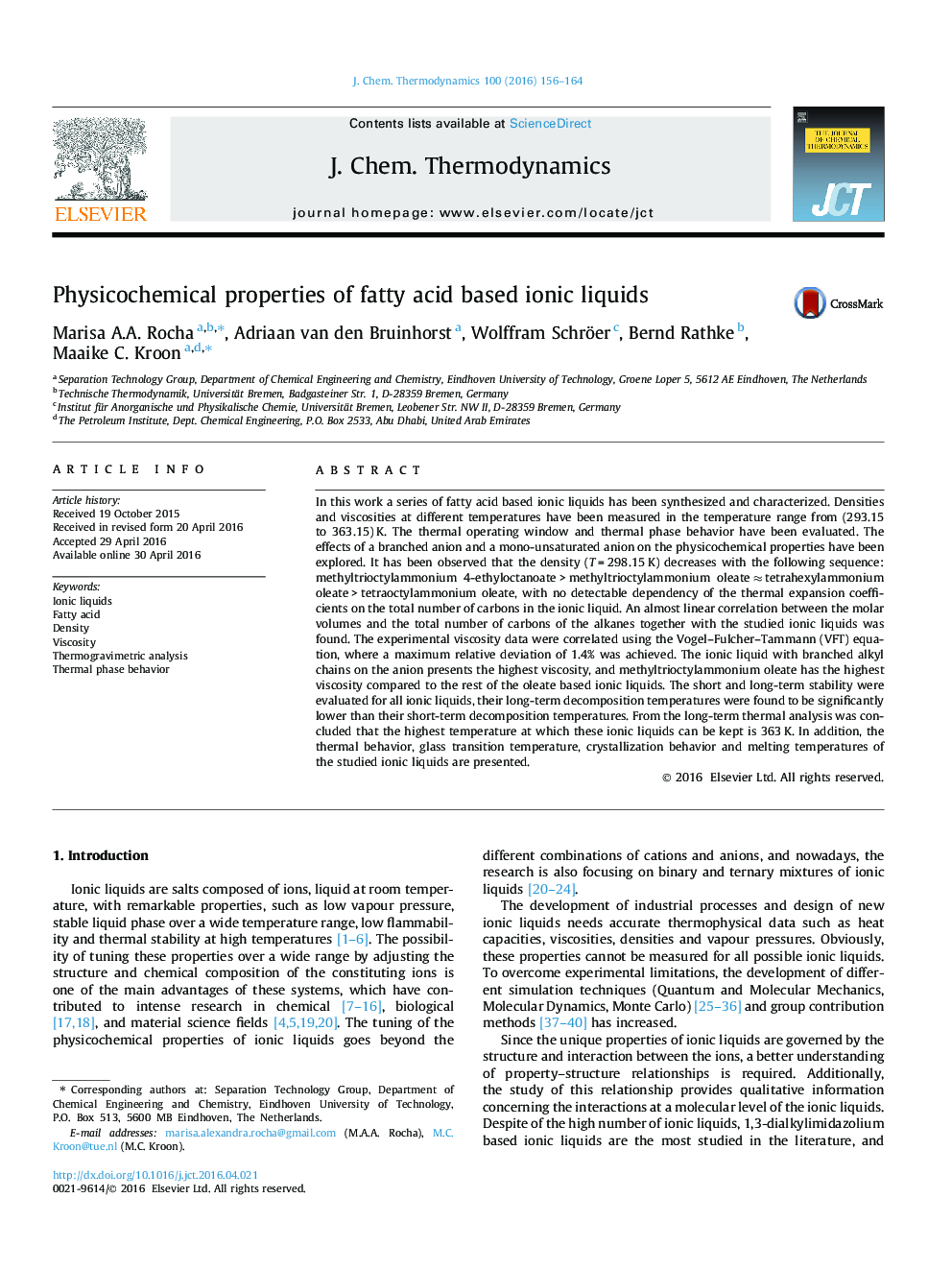| کد مقاله | کد نشریه | سال انتشار | مقاله انگلیسی | نسخه تمام متن |
|---|---|---|---|---|
| 214916 | 1426213 | 2016 | 9 صفحه PDF | دانلود رایگان |
• Effects of a branched anion and a mono-unsaturated anion on the physicochemical properties have been explored.
• Fatty acid based ionic liquids were synthesized and characterized.
• Densities and viscosities at different temperatures have been measured.
• The thermal operating window and thermal phase behavior have been evaluated.
In this work a series of fatty acid based ionic liquids has been synthesized and characterized. Densities and viscosities at different temperatures have been measured in the temperature range from (293.15 to 363.15) K. The thermal operating window and thermal phase behavior have been evaluated. The effects of a branched anion and a mono-unsaturated anion on the physicochemical properties have been explored. It has been observed that the density (T = 298.15 K) decreases with the following sequence: methyltrioctylammonium 4-ethyloctanoate > methyltrioctylammonium oleate ≈ tetrahexylammonium oleate > tetraoctylammonium oleate, with no detectable dependency of the thermal expansion coefficients on the total number of carbons in the ionic liquid. An almost linear correlation between the molar volumes and the total number of carbons of the alkanes together with the studied ionic liquids was found. The experimental viscosity data were correlated using the Vogel–Fulcher–Tammann (VFT) equation, where a maximum relative deviation of 1.4% was achieved. The ionic liquid with branched alkyl chains on the anion presents the highest viscosity, and methyltrioctylammonium oleate has the highest viscosity compared to the rest of the oleate based ionic liquids. The short and long-term stability were evaluated for all ionic liquids, their long-term decomposition temperatures were found to be significantly lower than their short-term decomposition temperatures. From the long-term thermal analysis was concluded that the highest temperature at which these ionic liquids can be kept is 363 K. In addition, the thermal behavior, glass transition temperature, crystallization behavior and melting temperatures of the studied ionic liquids are presented.
Journal: The Journal of Chemical Thermodynamics - Volume 100, September 2016, Pages 156–164
